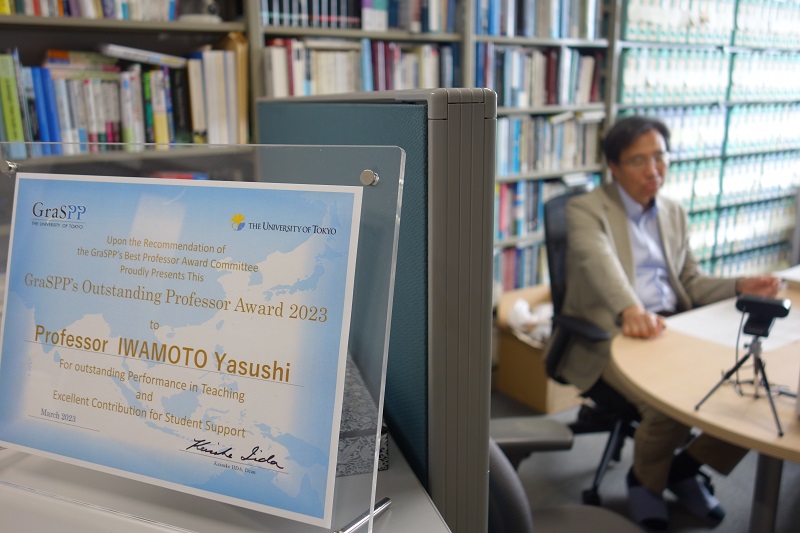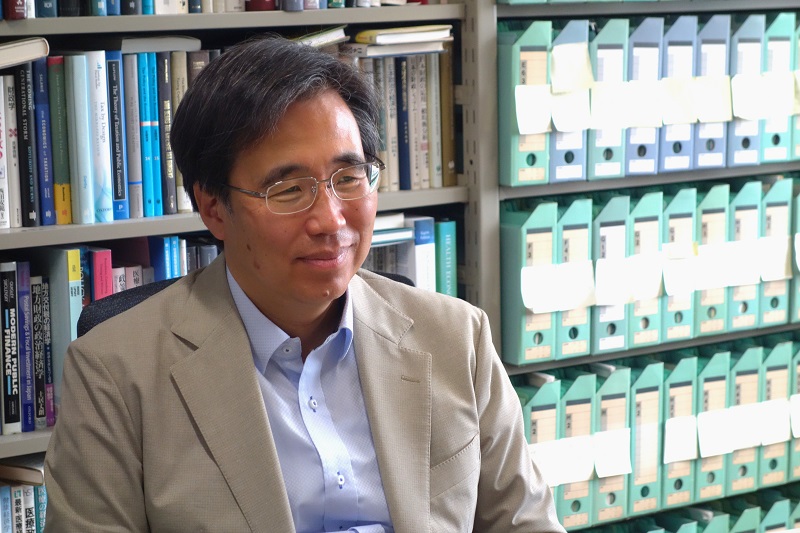Public finance, of which I am a specialist in covers a very broad range of research subjects, and I am currently researching the topic of social protection. With many developed nations facing an aging population, national spending on social security has grown rapidly and the topic has become very important. “Funding is essential to meet the growing social security costs, however, taxes cannot be easily increased.” We undertake research to form a strategy under these circumstances, on how to secure such financial resources and what these financial resources should be used for.
 Within the academic curriculum, the lecture-style class and case study class I am in charge of is called “Economic Evaluation of Public Policies” (Course Code: 5113090). In the lecture-style class, students learn to do the “cost-benefit analysis”. In the class, we not only have lectures but also introductions to practical examples by external guest speakers and a group project, which allow students to learn and use the cost-benefit analysis.
Within the academic curriculum, the lecture-style class and case study class I am in charge of is called “Economic Evaluation of Public Policies” (Course Code: 5113090). In the lecture-style class, students learn to do the “cost-benefit analysis”. In the class, we not only have lectures but also introductions to practical examples by external guest speakers and a group project, which allow students to learn and use the cost-benefit analysis.
When performing and using the cost-benefit analysis, the effects and costs of the policy are evaluated by monetary means. In the case of a private business, it is possible to make quantitative evaluations based on the concept of “how much money was spent? and how much money was for profit?” However, when it comes to public policies, quantitative evaluations cannot be done so easily. This is because public policies do not bring direct “sales”. Therefore, it tends to lead to a qualitative policy evaluation, rather than quantitative. With the cost-benefit analysis, the evaluation is pursued from the perspective of how much public service users enjoy the benefits and how these benefits match the costs. Nevertheless, it is very difficult to make an evaluation that is persuasive and prepare a report without proper knowledge of the subject area.
 To be completely honest, I am always nervous to see if the group projects are able to present at the final presentation as the class is only conducted over three months. But everyone works extremely hard, and all projects so far have been successfully completed. The reports completed by the students can be found on the Graduate School of Public Policy’s (GraSPP) website.
To be completely honest, I am always nervous to see if the group projects are able to present at the final presentation as the class is only conducted over three months. But everyone works extremely hard, and all projects so far have been successfully completed. The reports completed by the students can be found on the Graduate School of Public Policy’s (GraSPP) website.
In one project, a cost-benefit analysis was applied for a policy that involved the maintenance of seawalls and relocation (of residential areas) to higher ground. The cost-benefit analysis revealed that the costs of the project outweighed its benefits. The project was an important topic at the time and the report was even featured in an NHK special program.
The skills acquired in cost-benefit analysis, as well as the case studies will be of great use in both the private sector and in policy making. GraSPP is often viewed as a graduate school that trains future civil servants, however, many students also go on to work in the private sector.
Another allure of GraSPP campus life is that students, as well as staff are able to build various networks during their time here. Some even refer to us and the School as the “GraSPP Mafia”! The connections you make not only with other students, but also with alumni and external practitioners are valuable assets that will last a lifetime. I hope that all students are able to make significant future contributions, taking advantage of the many encounters made at GraSPP.

2023 Best Teacher Award.



